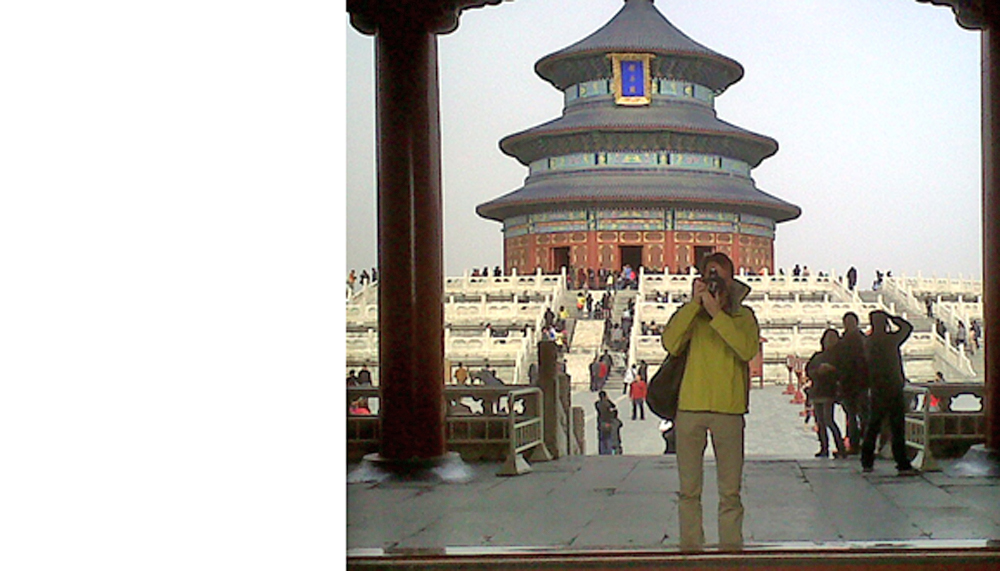Don Durfee
As Thomson Reuters’ China bureau chief, Beijing-based Don Durfee oversees news coverage for mainland China, including the work of over 100 text journalists, photographers and TV staff. For this post, he remarks on notions of the ideal, shifting priorities and using collaboration.
•
First, let me say this: there is the workspace I fantasize about, and there’s the one I actually need.
In my dream, I lean back in my simple, comfortable chair and gaze across an empty maple desk, sunlight streaming in from the windows. My books are all neatly arranged on a bookshelf. I hide my Macbook in a desk drawer when I’m not using it. I swivel around in my chair to pour another cup of Sumatra coffee and adjust the volume on my stereo, which plays only my favorite songs.
But back to reality. I’m sitting at my desk in the Reuters News Beijing bureau. It’s a big, open—and sometimes chaotic—room, where about 100 journalists work, including cameramen, web designers, translators and reporters writing about everything from earthquakes to money. A drab Chinese official is speaking on one of the dozen TV screens around the room. Someone is yelling to me – “Can you believe that someone just called me to say that radiation from Japan has already arrived in Beijing? Ridiculous!”
I’m a reporter. Or, rather, an ex-reporter who now attempts to run a news operation through email, blackberry, online chatrooms, phone calls, meetings and conversations with the writers sitting a few feet from me.
When there is breaking news—and there’s been a lot lately, with Japan’s crisis and China’s crackdown on reporters—we have to work quickly and together. Hence the absence of walls and our desks, which are arranged in clusters of four so we can easily discuss stories, complain and tell jokes, all without getting up. That’s important, because nearly every story is a collaboration. At times five people will all be on the phone, conducting interviews for a single article that one person is typing up.
Every desk has at least two computer monitors, to make it easier to keep an eye on messages while writing.
The bureau isn’t the tidiest place. There are stacks of newspapers, and some broken printers and unused fax machines. Several of my colleagues keep great heaps of unsorted papers and books on their desks — treatises on China’s environmental policies, statistical almanacs and well-worn Chinese dictionaries. One especially prolific writer has so many papers that he can barely find his computer screen. The building management sent me a note the other day suggesting that his desk violates some fire code.
My office wasn’t always like this. In earlier days, I was a magazine writer. I had a dim, but warmly lit office with a mahogany desk and a shelf full of reassuringly familiar books. Pictures of my wife and two girls—babies back then—were on the wall under my favorite poster depicting Napoleon’s disastrous march on Moscow. There was always an iPod nearby so that I could find just the right music to match whatever I was writing. Astor Piazzolla for the long articles, Frank Black for the stories that called for a little aggression.
In other words, pretty close to my fantasy. (I've also tried to get close with my desk at home -- but in truth my daughters spend more time there drawing than I do writing.)
But my newsroom, rough around the edges, noisy and friendly, has its charms. At least there’s someone to talk to.

